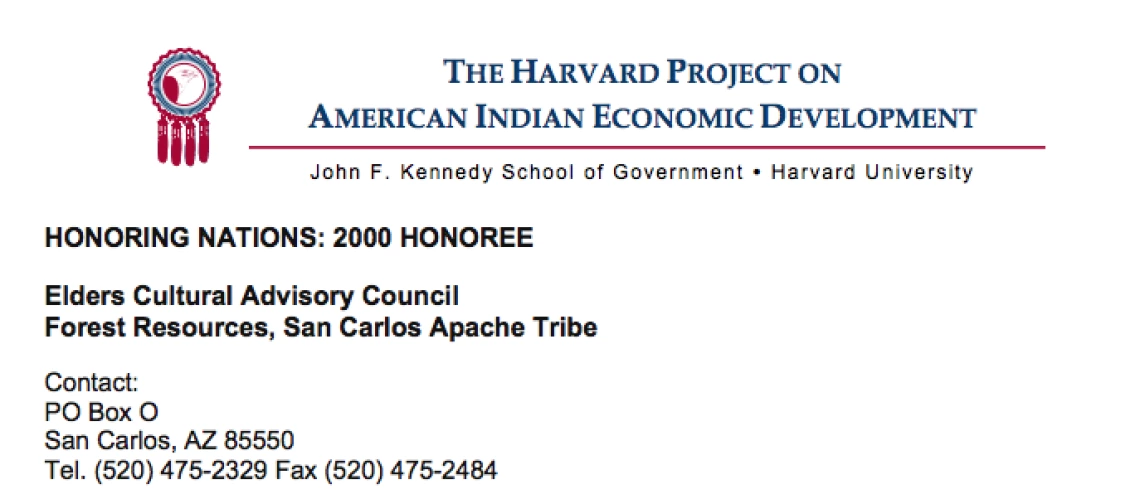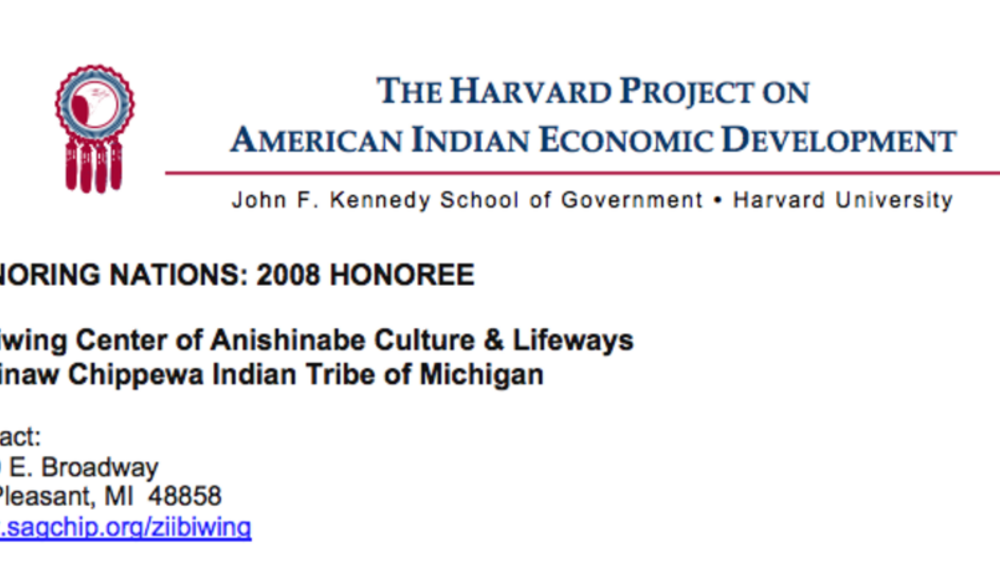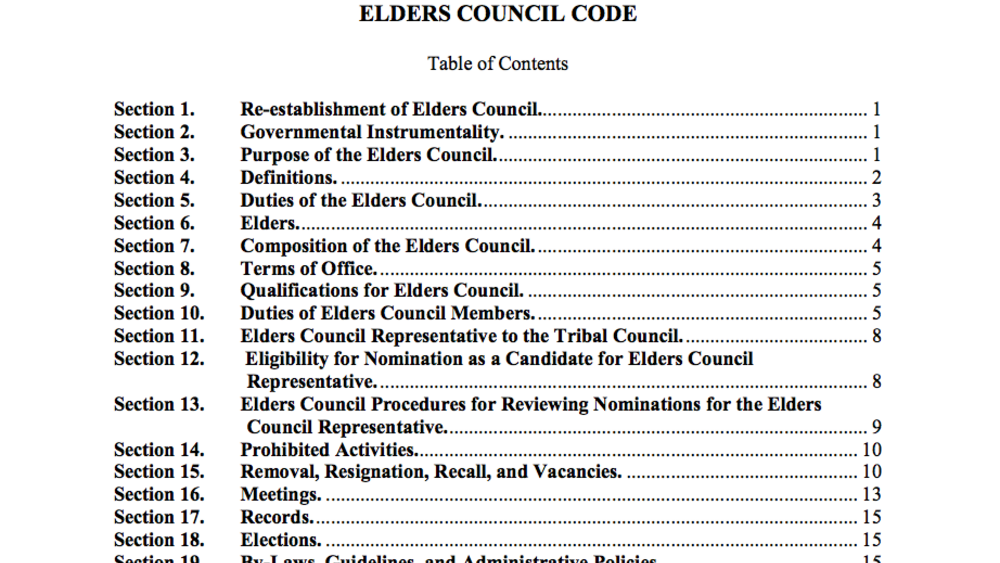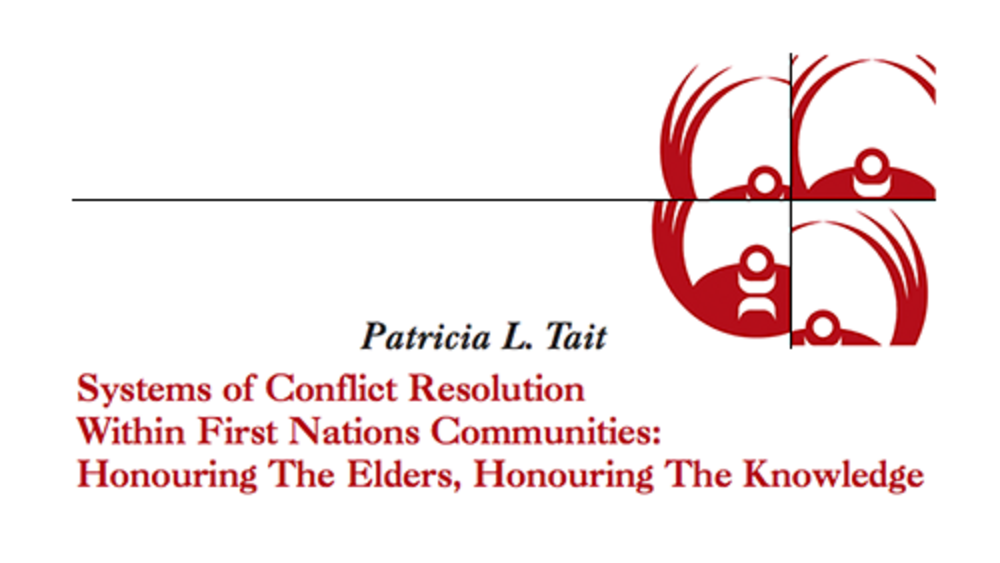The Elders Cultural Advisory Council was formed by a resolution of the San Carlos Tribal Council in 1993 to advise on culturally related matters, to consult with off-reservation entities, and to administer and oversee cultural preservation activities. As a source of traditional wisdom, the Elders Council plays an active role in the Tribe’s governance by providing insight on issues as diverse as resource management, leadership responsibilities, cultural practices, and repatriation of sacred objects. The values of self-reliance, respect, and a deep connection to nature are central to traditional Apache life and are underlying themes in all Elders Cultural Advisory Council activities, consultations, and messages. In establishing the Elders Cultural Advisory Council, the San Carlos Tribe gains access to an important source of traditional knowledge and enables a key constituency to have a voice in tribal affairs.
Additional Information
"Elders Cultural Advisory Council." Honoring Nations: 2000 Honoree. The Harvard Project on American Indian Economic Development, John F. Kennedy School of Government, Harvard University. Cambridge, Massachusetts. 2001. Report.




